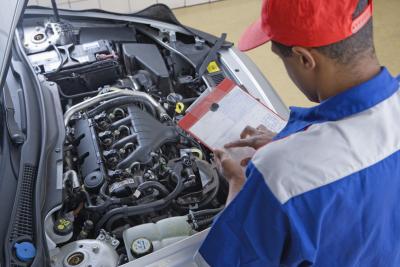
In automobiles, sometimes it can be necessary to conduct engine modifications and fuel adjustments to promote better engine performance ratings. In order not to affect overall vehicle performance while it is getting used to the new configurations, fuel pressure regulators are used.
Fuel pressure regulators are mechanical devices inserted in automobile engines to maintain normal fuel pressure after a new engine modification has been installed. They are necessary in keeping the increased flow of fuel at normal levels because newly installed aftermarket pumps work faster, as compared with the removed pump, whose performance had slowed down (and eventually worn out) due to regular use.
Fuel pressure regulators are available in different shapes and sizes, depending on the type of fuel pump they are to be installed in. Their main purpose, however, is to maintain a constant and consistent fuel pressure despite the changes going on in the overall fuel pump by keeping the difference in pressure between the intake manifold pressure and the fuel rail. By keeping this differential pressure, the fuel pump will be able to accommodate greater injected fuel flow during operation.
In most combustion engines and automobiles, the main goal of the fuel pressure regulator is to maintain the fuel system pressure at 28 psi, regardless of type and size of the fuel pump. The regulator is controlled by a spring-loaded diaphragm along with a valve which, when opened, releases a fuel line, which in turn brings back the excess fuel to the tank.
Fuel pressure regulators have an integral role in various mechanical devices because they serve as a buffer in keeping the fuel pump’s function constant despite changes in the fuel amount or the speed of the pump while the whole machine is running. Fuel pressure regulators help decrease remissions during the deceleration, thus saving up fuel, keeping it stored in the tank for further use. The regulator also has the tendency to expand the valve to reduce the pressure from the pump to the tank.
Aside from being an integral part of a fuel pump, fuel pressure regulators also have other benefits and advantages. For environmentalists, the effects of a fuel pressure regulator are important in reducing the emission of carbon monoxide and other toxic gases produced by the automobile, as there is less fuel being injected to the engine. Also, unlike other automobile spare parts, fuel pressure regulators are highly durable and almost never break, thanks to the simple design.